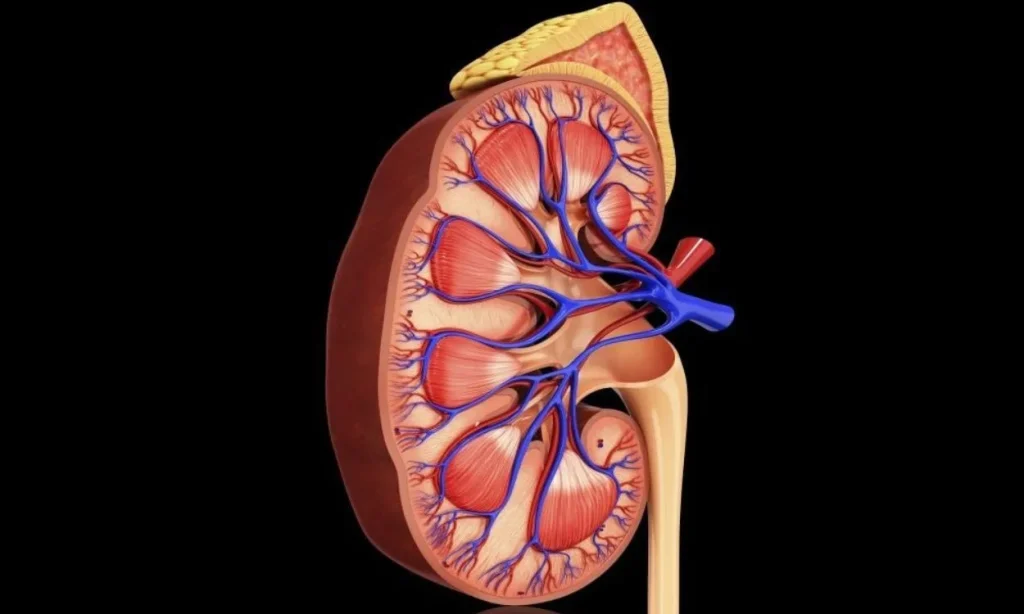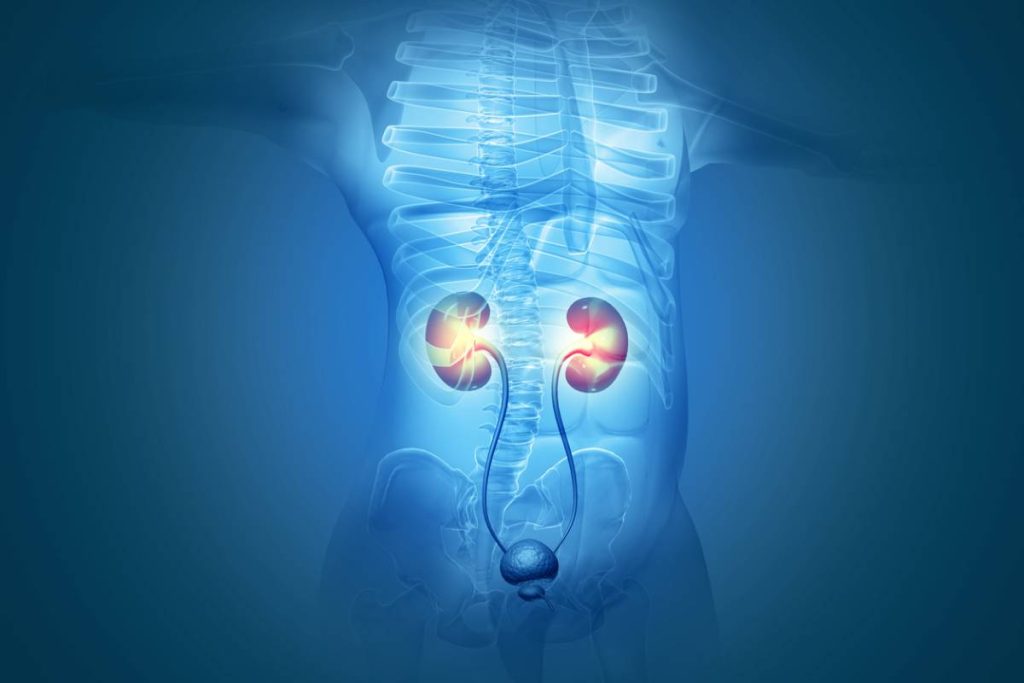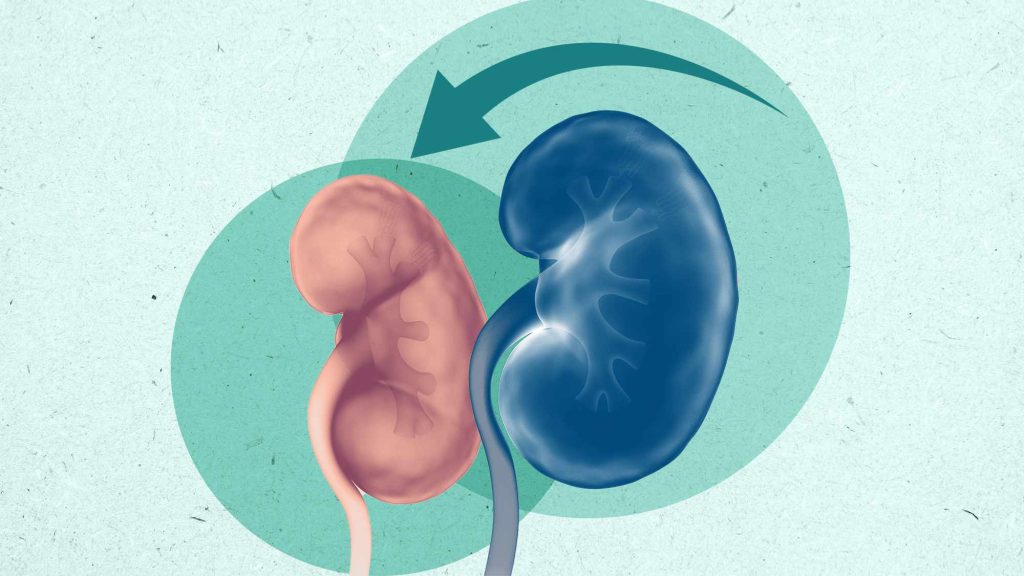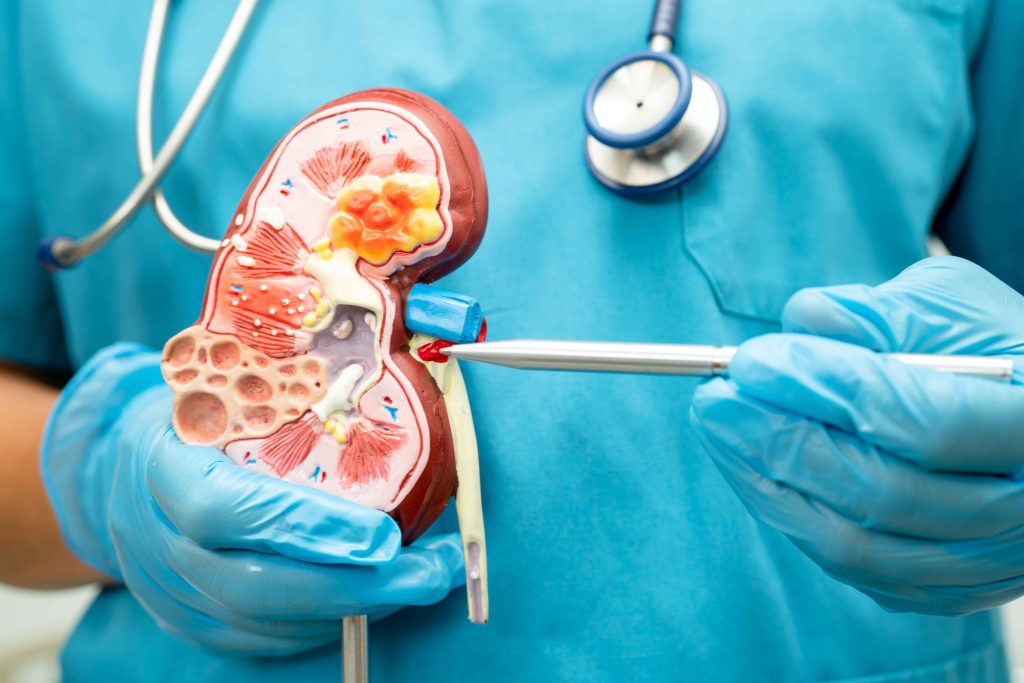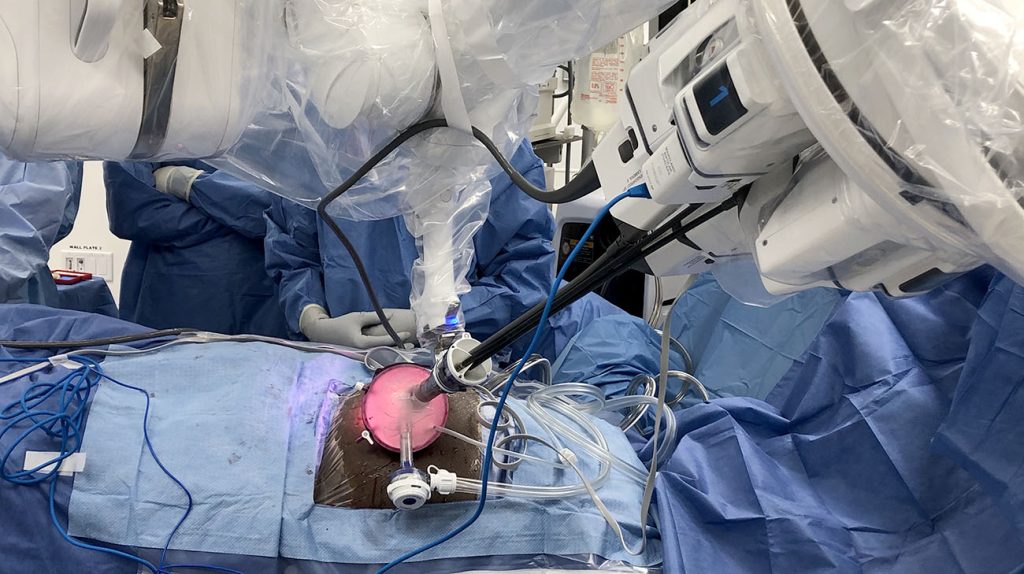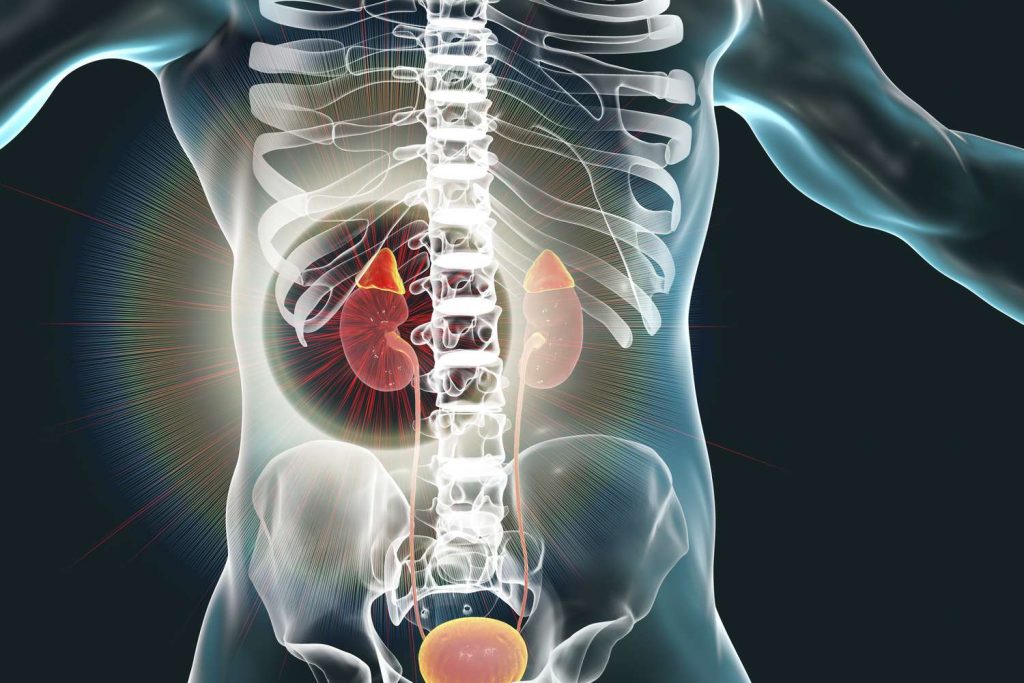UKidney Function
The kidneys, small but powerful organs located on either side of the spine, filter about 120 to 150 liters of blood per day, producing about 1 to 2 liters of urine. They remove waste products and excess substances, regulate blood pressure and produce hormones needed for bone health and red blood cell production. Without healthy kidneys, our body cannot function optimally.
Kidney Diseases
Various kidney diseases can significantly affect health. Chronic kidney disease (CKD) is a long-term condition in which the kidneys gradually lose their function. It is usually caused by diabetes, hypertension or glomerulonephritis. Acute kidney injury (AKI) is the sudden loss of kidney function, usually due to illness, injury or certain medications. Another common condition is nephrolithiasis, or kidney stones, which can cause severe pain and complications if not treated promptly.
Symptoms to Watch Out For
Recognizing the signs of kidney disease early can lead to better outcomes. Common symptoms include fatigue, swelling of the legs and ankles, changes in urine output and high blood pressure. In more advanced stages, symptoms can include nausea, vomiting, loss of appetite and difficulty concentrating. If you are experiencing any of these symptoms, it is very important to consult a nephrologist.
Role of a Nephrologist
Nephrologists are specialized doctors who diagnose and treat kidney diseases. They manage conditions such as CKD, AKI and hypertension. Treatment plans may include medications, lifestyle changes and, in severe cases, dialysis or kidney transplantation. Nephrologists also focus on preventive care, which aims to slow the progression of kidney diseases and maintain overall kidney health.



Diagnosing kidney diseases involves a variety of tests and procedures. Blood tests such as serum creatinine and blood urea nitrogen (BUN) measure kidney function. Urine tests help detect abnormalities that indicate kidney problems.
Treatment and Management
Managing kidney diseases often requires a multifaceted approach. Medications can help control blood pressure, manage symptoms and slow disease progression. Dietary changes focusing on reducing salt, protein and phosphorus intake are very important. Dialysis or a kidney transplant may be necessary for advanced kidney disease. Dialysis helps to remove waste and excess fluids when the kidneys can no longer adequately perform these functions.
Preventing Kidney Diseases
Prevention of kidney disease requires maintaining a healthy lifestyle. Regular exercise, a balanced diet and staying hydrated are key factors. Monitoring and managing underlying conditions such as diabetes and hypertension can significantly reduce the risk of kidney disease. Regular check-ups with a health professional can catch early signs of kidney problems, allowing timely intervention.
Advances in Nephrology
Nephrology is a constantly evolving field with ongoing research and advances. New drugs and treatments are being developed to improve patient outcomes. Advances in dialysis technology and kidney transplantation techniques are making these treatments more effective and accessible.
Importance of Patient Education
Educating patients about kidney health is vital. Understanding risk factors, symptoms and treatment options empowers individuals to take control of their health. Healthcare providers should help patients make informed decisions about their care, with a focus on open communication and support.
Living with
Kidney Disease
Living with kidney disease can be challenging, but with the right support and management, patients can lead a fulfilling life. Regular follow-ups with a nephrologist, adhering to treatment plans and making lifestyle changes are very important. Support groups and counseling can also help patients cope with the emotional aspects of living with a chronic condition.
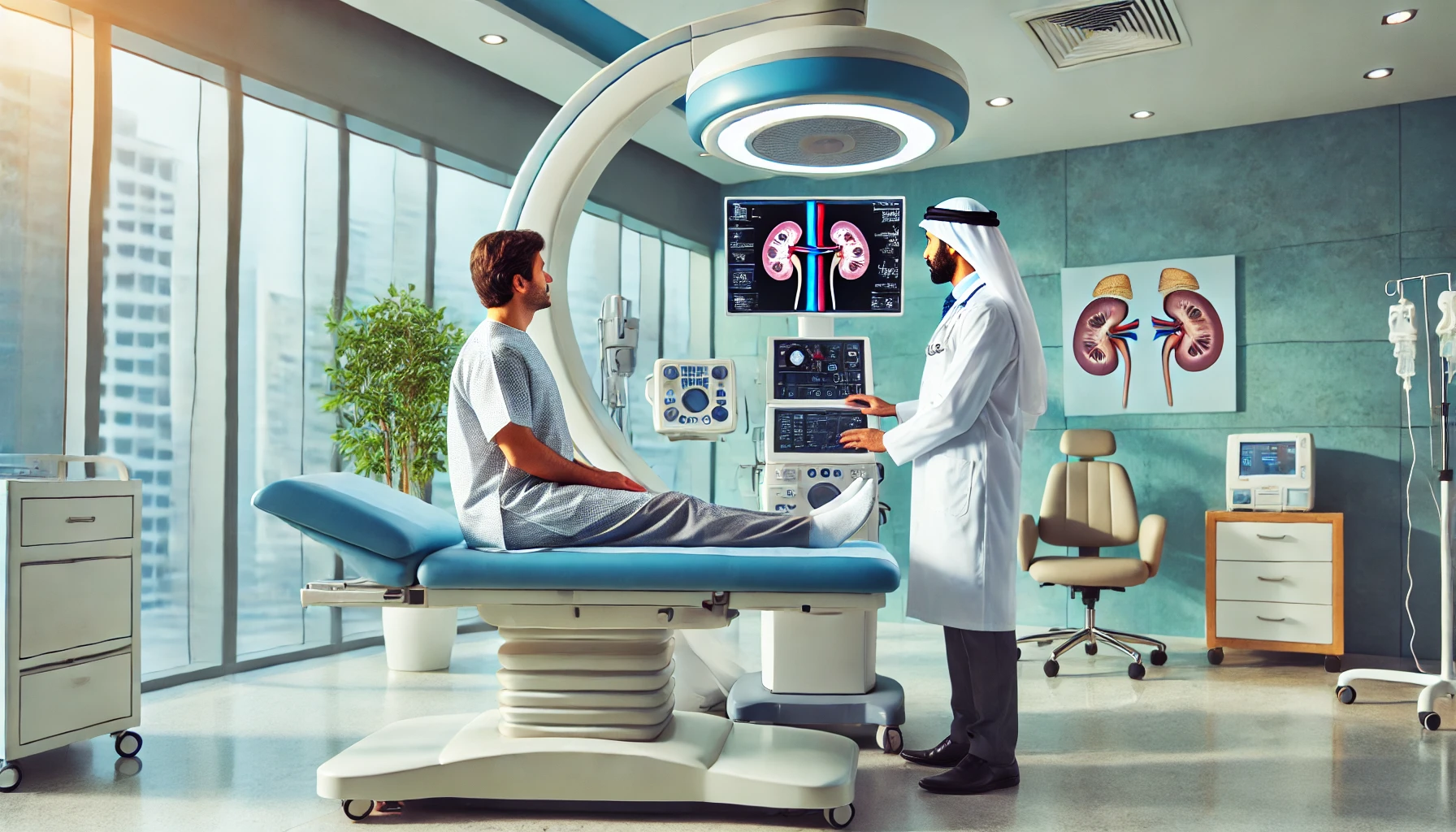

Articles
Nephrology and Pregnancy: Key Facts to Know
Many women learn about kidney health for the first time during pregnancy when routine tests reveal numbers or terms they have never heard before, raising questions about what these findings[…]
Read moreHow Autoimmune Diseases Affect the Kidneys
Have you ever wondered why some people suddenly develop kidney problems even when they appear otherwise healthy? Many individuals feel fine for years before quiet inflammation begins affecting how the[…]
Read moreNatural Supplements That Support Kidney Function
Many people begin exploring natural supplements only after experiencing subtle signs of fatigue, swelling, or digestion changes, and this growing curiosity often leads them to wonder whether certain well-known natural[…]
Read moreProteinuria: What It Means and How It’s Treated
Protein in your urine can be an early warning sign that your kidneys are under stress long before you feel unwell, so understanding proteinuria and knowing when to seek help[…]
Read moreHow to Slow the Progression of Chronic Kidney Disease
A diagnosis of Chronic Kidney Disease (CKD) is a profound turning point in a person’s medical journey, initiating a critical need for rigorous, proactive management. It signifies a gradual and[…]
Read moreThe Important Role of Nephrology in Managing Diabetes
The pervasive nature of diabetes mellitus as a systemic disease means that its effects ripple far beyond mere glucose dysregulation, ultimately touching nearly every organ system in the body. Among[…]
Read moreUnderstanding Kidney Transplant Surgery Steps
Kidney transplantation, standing as the definitive treatment for End-Stage Renal Disease (ESRD), represents far more than a surgical procedure; it is a life-altering odyssey demanding exhaustive preparation, intricate surgical execution,[…]
Read morePediatric Nephrology: Kidney Care for Kids
The care of a child’s kidneys is fundamentally distinct from adult nephrology, recognizing that a child’s renal system is not simply a smaller version of an adult’s. Pediatric nephrology is[…]
Read moreThe Role of the Kidneys in Hormone Regulation
The kidneys are routinely viewed through the narrow, yet critical, lens of filtration and waste excretion. While their function as the body’s sophisticated waste management system—balancing fluid, electrolytes, and acid-base[…]
Read more

